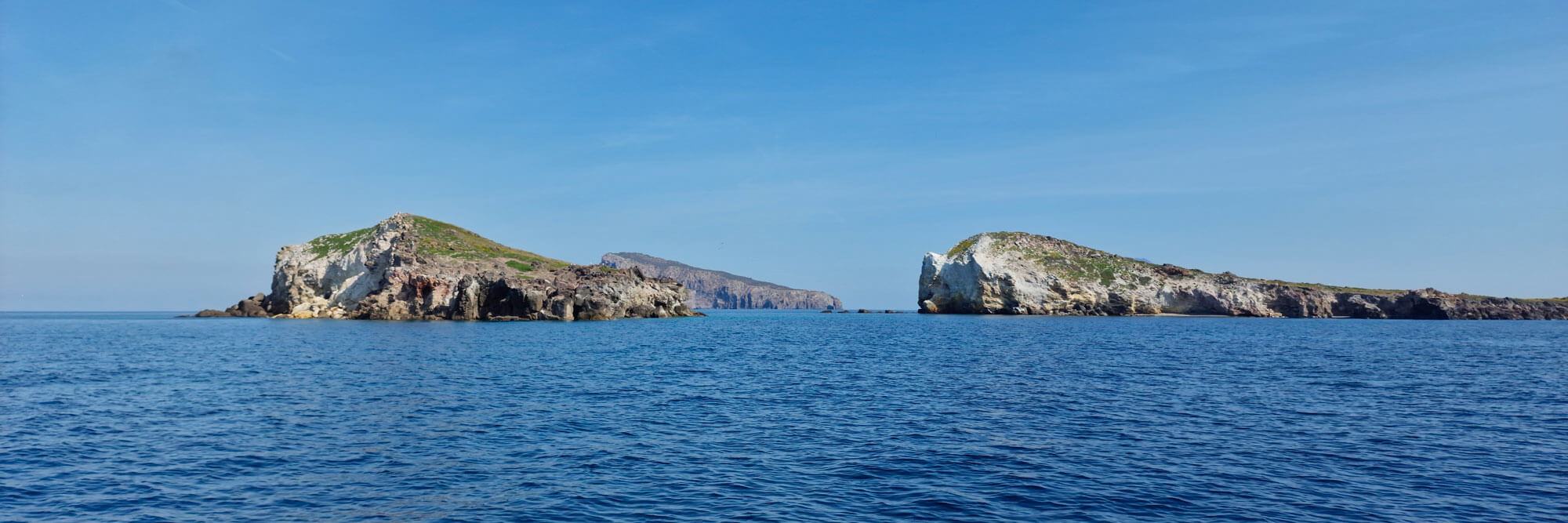
Invasive alien species are, globally, one of the main threats to the survival of native species. In the case of plants, they can compete for space and resources, or have allelopathic effects that prevent the growth of other species. Their removal is therefore necessary when planning environmental restoration interventions aimed at the conservation of threatened species.
On the islet of Lisca Bianca there were two invasive exotic species: the Hottentot fig (Carpobrotus acinaciformis), native to the Cape Region of Southern Africa, and the prickly pear (Opuntia ficus-indica), native to Mexico. Both species are common in Mediterranean coastal environments as they are resistant to aridity and high temperatures. Their presence on Lisca Bianca, an uninhabited islet, can be traced back to sporadic events of planting and dispersion of seeds or vegetative material.
Three individuals of Opuntia ficus-indica and a nucleus of Carpobrotus acinaciformis, covering approximately 500 m2, identified through the analysis of aerial photographs from a drone, were removed manually, without the use of herbicides. We chose to proceed in this way considering the limited extension of the invaded area and the co-presence of these species with Anthemis aeolica.
The removed plant material was temporarily stored inside plastic bags which, to limit their visual impact and to avoid the dispersion of plastic into the environment, were placed inside jute bags. These were exposed to the sun for months so that the high temperatures reached inside the bags caused the plant material to lose viability and reduce its biomass.
A similar process of eradication of IAPs was carried out at a Natura 2000 site (SAC MT0000024) in the Maltese Islands, namely the Bel Veder Area of Wied Babu.
Mature Agave sp. pl. with totem poles were first removed and any dispersed rooted bulbils meticulously collected. The mother plants, offsets and stolons were next removed mostly by hand since the material is not easy to remove by mechanical means. All material was collected in jumbo bags and hauled away to a composting site.